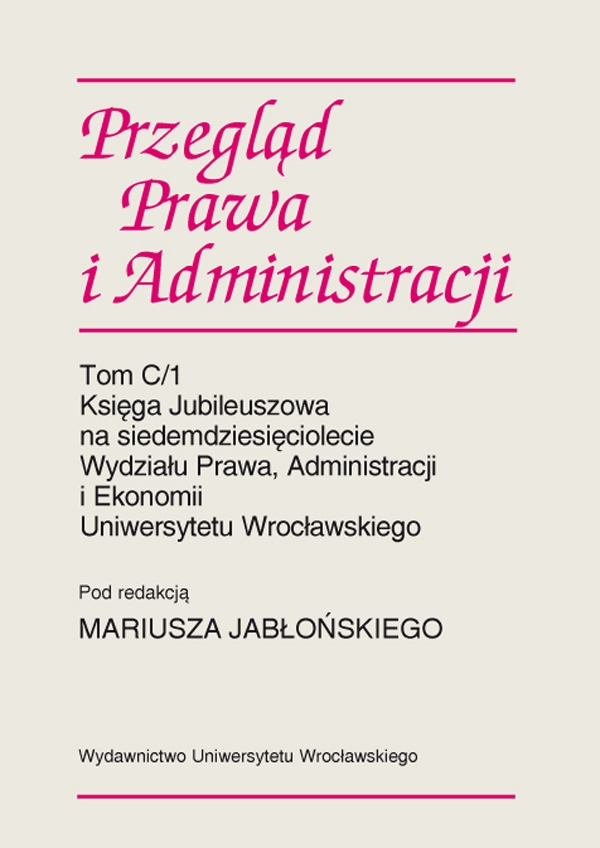

Artykuły archiwalne

THE INSTITUTE OF ECONOMIC SCIENCES
The current Institute of Economic Sciences has its beginnings in the Department of Political Economics, created in April 1946, whose head was Prof. Wincenty Styś 1903–1960. In 1972 the Department was renamed the Institute of Political Economics, and in 1990, the Institute of EconomicSciences with four departments International Economic Relations, Economic Thought, Economic Theory and Economic Policy. In 1999, following the establishment of a degree in economics, the Division of Statistics and Operations Research was transferred to the Institute from the Institute of Administrative Sciences and the Division of Financial Management was established. Today, the Institute of Economic Sciences consists of six departments and the Research and Documentation Center of the European Union, in which in 1996 the Jean Monnet Department in European integration was created for Prof. J. Kundera. The Institute was headed in turn by Prof. Tomasz Afeltowicz 1968–1991, Prof. Leon Olszewski 1991–2002, Prof. Elżbieta Kundera 2002–2005, Prof. Jarosław Kundera 2005–2012, and currently Prof. Urszula Kalina-Prasznic. The Institute employed 30 people — 9 professors and 21 assistant professors.
The area of interest of workers within the Institute of Economic Sciences was and remains wide, and their achievements during the period of 1945–1990 independent of the prevailing ideology of Marxism-Leninism. Prof. W. Styś’s opposition against imposing science policy requirements was victimized. His colleagues continued the legacy of Professor, faithful to the principle of the independence of scientific thought. They created outstanding works from the theory of economics, economic thought and economic history. W. Styś published two major monographs: Drogi postępu gospodarczego wsi. Studium szczegółowe na przykładzie zbiorowości próbnej wsi Husowa [Economic Progress in the Countryside. A Detailed Study Based on the Example of the Trial Population of the Husów Village] 1947 and Współzależność rozwoju rodziny chłopskiej i jej gospodarstwa [The Interdependence of the Development of a Peasant Family and Its Farm] 1959. Other monographs include: T. Afeltowicz’s Studia nad historią banków śląskich [Studies on the History of Silesian Banks] 1963, W. Trznadel’s Huta szkła kryształowego „Julia” w Szklarskiej Porębie w latach 1841–1863 [The Crystal Glass Mill “Julia” in Szklarska Poręba in the Years 1841–1863], 1966, W. Samecki’s Centralny Okręg Przemysłowy 1936–1939 [The Central Industrial Region 1936–1939], 1998. In the theory of economics the following books were written: W. Samecki, Ryzyko i niepewność w działalności przedsiębiorstwa przemysłowego [Risks and Uncertainties in the Activities of an Industrial Enterprise] 1967 and Gospodarowanie za pomocą planowania [Management
through Planning] 1972, when it comes to the theory of growth, R. Sorgenstein published a book entitled Okres eksploatacji zasobów górniczo-energetycznych w węglu brunatnym [Period of Exploitation of Mining-Energetic Resources in Lignite Coal] 1965 and W. Trznadel Przestrzenne dysproporcje gospodarczo-społeczne we Włoszech XIX i XX wieku i drogi ich przezwyciężania [Spatial Economic and Social Disparities in Italy of the 19th and 20th centuries and Ways of Overcoming Them] 1988. The work of J. Chodorowski Definicje w systemach ekonomicznych [Definitions in Economic Systems] 1974 concerned methodology, and his habilitation Niemiecka doktryna Gospodarki Wielkiego Obszaru Grossraumwirtschaft 1800–1945 [German Economic Doctrine of the Great Area Grossraumwirtschaft 1800–1945] 1972 and a monograph, Adam Smith 1723–1790 1980, 2002, in which he demonstrated that Smith could not be regarded as the founder of the science of economics, concerned the history of economic thought. In 1982 L. Olszewski
published a book Francuska doktryna dominacji gospodarczej [French Economic Domination Doctrine]. It was important to assess the economics in Poland in the period of real socialism, which was done by W. Samecki, O przedmiocie i metodzie ekonomii politycznej w Polsce [The Subject Matter and the Method of Political Economics in Poland] 1986.
In the period of 1990–2015 by expanding the existing lines of research, the study was extended to new areas — international economy, globalisation, European integration, alternative economics, theory and competition policy, capital market and its instruments and statistical inference. An important aspect of the scientific activities of the Institute of Economics are scientific conferences. The Institute always stood out in terms of international activity and the participation of workers in international programmes in partnership with the universities of the European Union and Eastern Europe, as well as in carrying out the studies for foreign students. The Institute’s staff are also involved in the work of many organizations and academic communities.